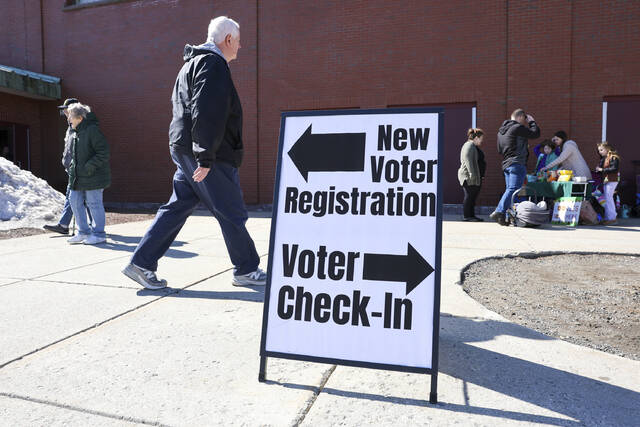The jury hearing the case of Robert Bowers in the federal courthouse Downtown already has decided he is guilty of the hate-motivated murders of 11 people, members of the three congregations that met at the Tree of Life Or L’Simcha synagogue in Squirrel Hill on Oct. 27, 2018.
Now they are being presented with testimony about why — and whether any reason is enough to keep him alive. The penalty phase, in which the jurors determine whether Bowers will be executed, continues this week.
The prosecution points to Bowers’ own words, rife with overt antisemitism. The defense points toward his mind and his mental health.
“He is unable to make decisions using proper judgment based on delusional beliefs,” Dr. Siddhartha Nadkarni said.
Nadkarni is a defense witness who took the stand Wednesday. He is an expert in neuropsychiatry and epilepsy. He testified to Bowers living in a world of “active psychosis” that made choices all but impossible. The picture painted sent jurors back to Bowers’ childhood and included seizures, a suicide attempt and indications of schizophrenia.
On Friday, forensic psychologist Richard Rogers spoke of “normalized delusional thoughts.”
Does this matter? Not exactly. While a 2002 U.S. Supreme Court case did hold that executing someone with intellectual disability should be prohibited, there is no real objection to mental illness. Perhaps that stems from a visceral feeling about murder — a belief that no truly sane person could commit such a heinous crime.
The medical community, the American Bar Association and other groups have taken stances against capital punishment for those with severe mental illness. Even some who don’t oppose the death penalty can draw a line when it comes to those battling their own brains.
Mental illness, after all, is often brought up as the real culprit in cases like Bowers’. Mental health is the other side of the gun control argument that comes up after a mass shooting.
The frustrating thing about failure to address mental illness is that there shouldn’t be an argument about it. Conservatives say it should be the focus. Liberals support normalization of mental health as health care and expanding access.
So why are people not getting the help they need?
The Substance Abuse and Mental Health Services Administration says 18% of the population has mental health issues, but in the court system that jumps to 37% to 44%.
Get more treatment to that general population — make it consistent and accessible — and it could cut down on those 4 in 10 people who end up in court, in prison or on death row.
It also could cut down on the number of people hurt along the way.








